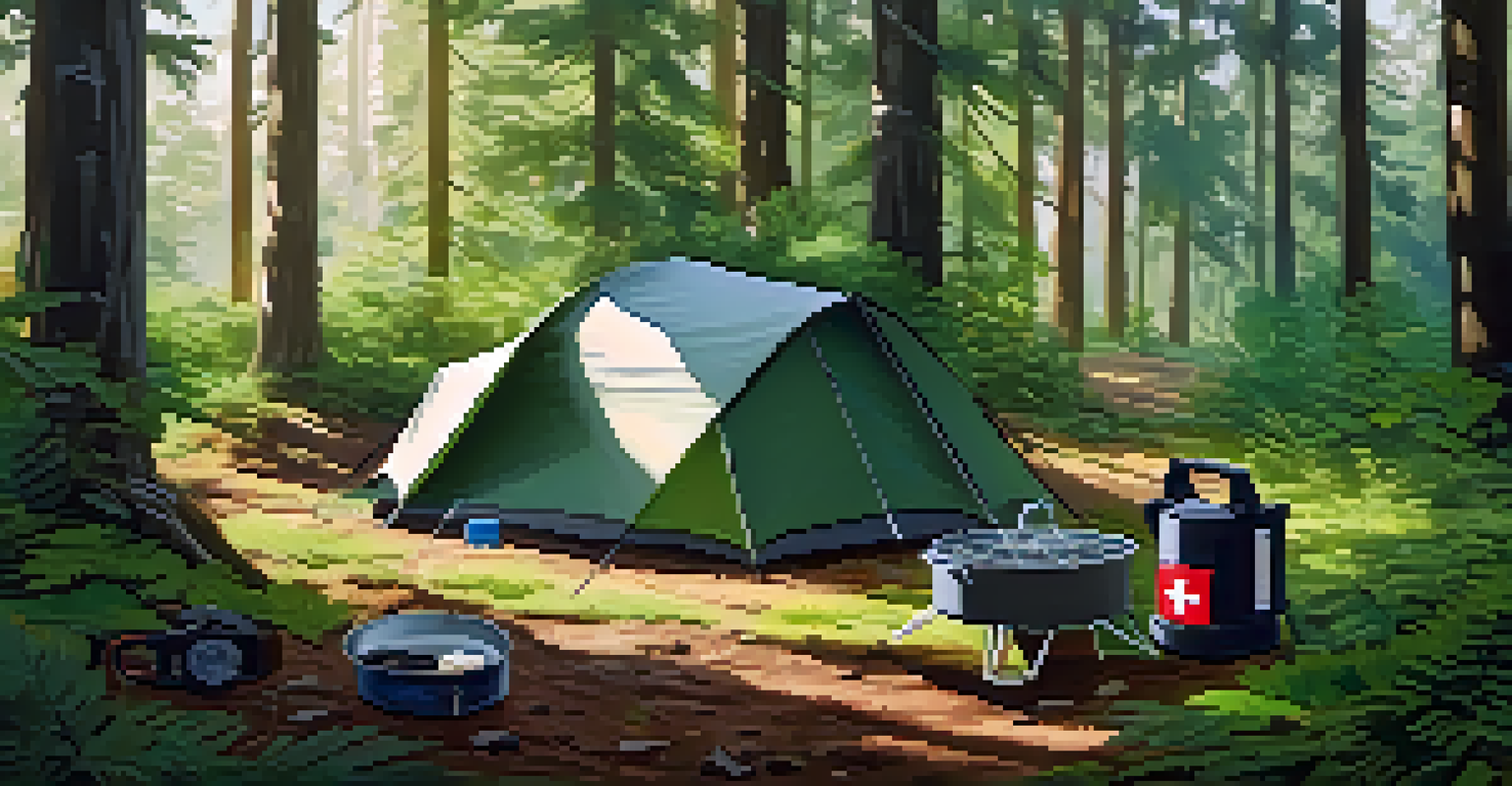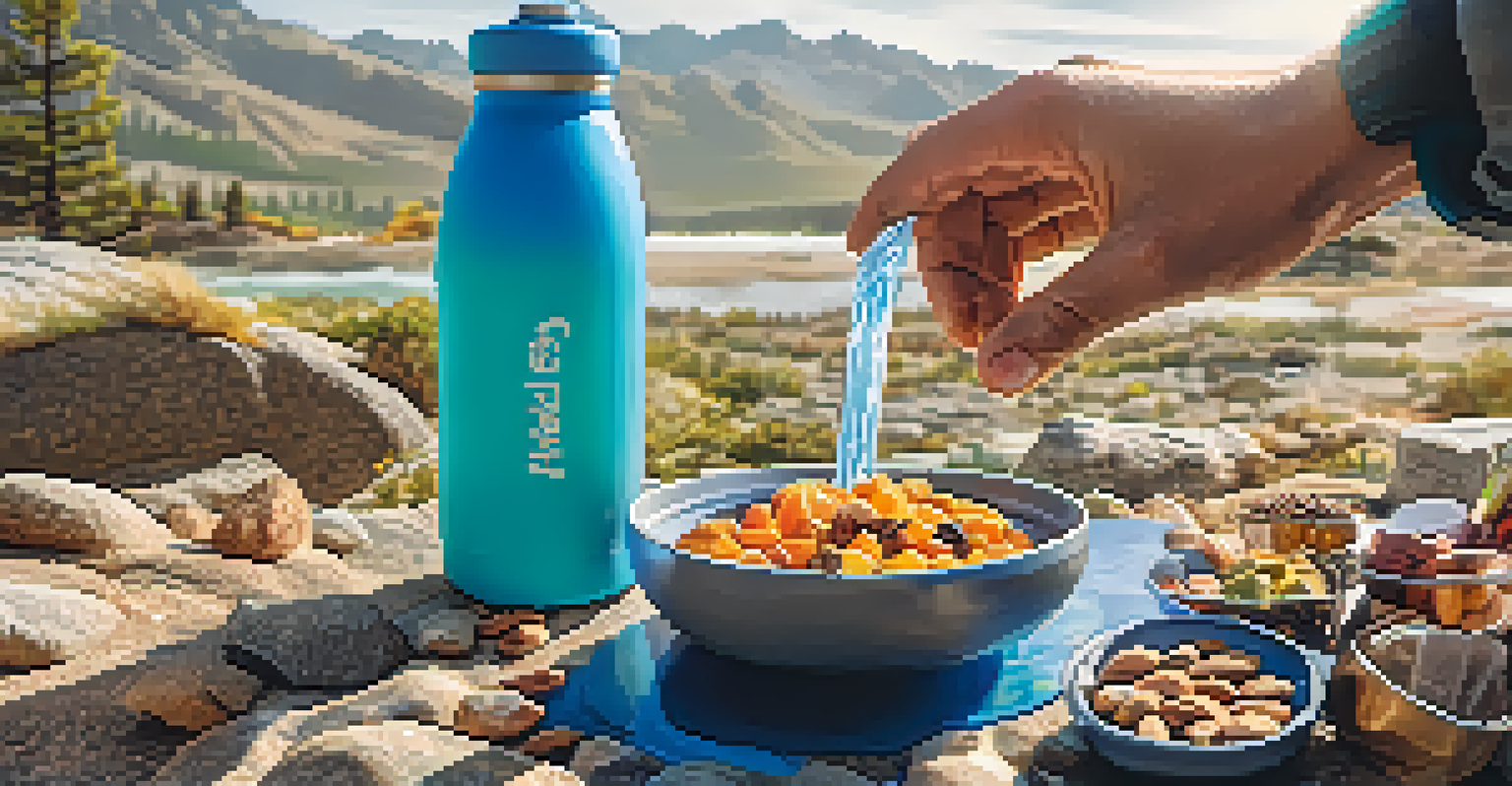Packing Tips: Must-Have Gear for Backpacking Trips

Choosing the Right Backpack: Size and Fit Matter
When it comes to backpacking, your backpack is your lifeline. Selecting the right size and fit is crucial to ensure comfort on the trail. Look for a backpack that fits your torso length and has adjustable straps for a personalized fit.
The backpack is the most important piece of gear for any trip. It's your home on the trail.
A good rule of thumb is to choose a backpack capacity based on the duration of your trip. For a weekend getaway, a 50-70 liter pack should suffice, while longer trips might require 70 liters or more. This will help you carry everything you need without overloading yourself.
Also, consider features like padded hip belts and ventilation systems to enhance comfort. A well-fitted backpack can make the difference between an enjoyable hike and a backache by the end of the day.
Essential Clothing: Layering for All Conditions
Layering your clothing is key to staying comfortable while backpacking. Start with a moisture-wicking base layer that keeps sweat away from your skin. On top of that, add an insulating layer, such as fleece, to retain warmth without adding bulk.

Finally, consider a waterproof and breathable outer layer, like a rain jacket, to protect against the elements. Weather can be unpredictable in the great outdoors, so being prepared can keep you dry and cozy.
Choose the Right Backpack Size
Selecting the correct backpack size and fit is essential for comfort during your backpacking adventures.
Don’t forget about accessories like hats, gloves, and extra socks—they can make a big difference in comfort. Packing clothing that can easily be layered helps you adapt to changing temperatures without carrying too much weight.
Tent Selection: Lightweight and Weather-Resistant
Choosing the right tent is crucial for a good night's sleep in the wilderness. Look for a lightweight, weather-resistant tent that suits your backpacking style. A two-person tent is often a great choice for solo travelers who want extra space or for couples.
The journey of a thousand miles begins with one step.
Consider the tent's weight, packed size, and ease of setup. A tent that can be pitched quickly can be a lifesaver after a long day of hiking. Also, check for features like a rainfly and good ventilation to protect against condensation.
Remember that a good tent doesn’t have to break the bank. Many affordable options offer great durability and weather resistance, so do your research and find the one that fits your needs best.
Cooking Gear: Lightweight and Efficient Solutions
When it comes to cooking gear, lightweight and compact options are your best friends. A portable camping stove and a lightweight cookware set can make meal prep easy without weighing down your pack. Opt for a stove that uses canister fuel for convenience and efficiency.
Don’t forget a reliable water filtration system or purification tablets, as staying hydrated is key to any backpacking trip. The last thing you want is to carry heavy water bottles when you can fill up at streams or lakes.
Layer Clothing for Comfort
Layering your clothing effectively helps you adapt to changing weather conditions while staying comfortable on the trail.
Additionally, consider packing reusable utensils, a compact cutting board, and a small sponge for easy cleanup. Minimalist cooking gear can help you enjoy warm meals without the hassle of heavy equipment.
Navigation Tools: Stay on Track with Confidence
Navigating in the wilderness requires the right tools. A reliable map and compass are essential for finding your way, especially in areas with poor cell reception. Familiarize yourself with basic navigation skills to enhance your outdoor confidence.
In addition to a map and compass, consider bringing a GPS device or a smartphone with offline maps downloaded. These tools can provide peace of mind, but always have a backup plan in case technology fails.
Remember to check trail conditions and maps before heading out. Being well-informed about your route can help you avoid getting lost and ensure a safer adventure.
First Aid Kit: Be Prepared for Any Situation
A well-stocked first aid kit is an absolute must for any backpacking trip. Include essentials like adhesive bandages, antiseptic wipes, gauze, and any personal medications you may need. Having a first aid kit means you're prepared for minor injuries and can stay focused on your adventure.
You might also want to add items like blister treatment and pain relievers, as these can be lifesavers on long hikes. It's better to have them and not need them than to find yourself in a tough spot without any supplies.
Pack Lightweight Cooking Gear
Using lightweight and efficient cooking gear allows for easy meal prep without adding unnecessary weight to your pack.
Before you head out, familiarize yourself with the contents of your first aid kit. Knowing how to use each item can save valuable time during an emergency, ensuring you can respond effectively.
Hydration Solutions: Stay Hydrated on the Trail
Staying hydrated is crucial for maintaining your energy levels while backpacking. Consider investing in a hydration bladder or a water bottle that you can easily carry in your backpack's side pocket. Hydration bladders allow for hands-free drinking, making it easier to sip while on the move.
Make sure to pack enough water purification methods, like filters or tablets, so you can refill your water supply from natural sources along the way. This not only lightens your load but ensures you always have access to clean drinking water.

Remember that hydration needs vary based on conditions, so keep an eye on how much water you're consuming. Staying ahead of dehydration can enhance your outdoor experience significantly.
Food Choices: Nutrient-Dense and Lightweight Options
Selecting the right food for your backpacking trip is all about balance and convenience. Opt for lightweight, nutrient-dense foods like nuts, dried fruits, and energy bars. These options provide quick energy without weighing down your pack.
Consider meal planning in advance, focusing on easy-to-cook options like dehydrated meals or instant oatmeal. These meals require minimal preparation and can be cooked with just boiling water, making them perfect for the trail.
Don’t forget to include snacks that you can munch on while hiking. Keeping your energy levels up throughout the day is essential for enjoying your adventure to the fullest.